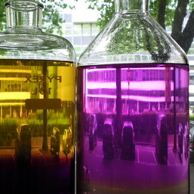Rep:Mod:fs1309moeule 3
3rd year computational lab Module 3 Transition states and reactivity.
Abstract:
This module aims to characterize the transition structures on potential energy surfaces for the Cope rearrangement and Diels Alder cycloaddition reactions. These can be achieved by using molecular orbital based method, solving Schrodinger equation numerically and locating the transition structures based on the local shape of a potential energy surface. Also calculating the structure of transition state, reaction paths and barrier heights.
Part 1 The Cope Rearrangement tutorial
Marks will be given for correct answers, the documentation showing how you got these, discussion, and how you went about solving any problems you encountered.
| Conformers | Total energy /a.u.(literature vale) | Point group | Structure | Structure in Appendix 1 | Summary | |
|---|---|---|---|---|---|---|
| Anti 1 | -231.69260220 (-231.69260) | C2 | 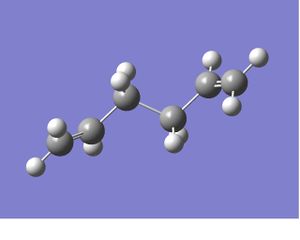 |
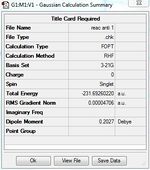 |
||
| Anti 2 | -231.69253494 (231.69254) | Ci |  |
 |
||
| Anti 3 | -231.68907066 (-231.68907) | C2h | 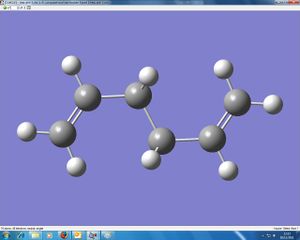 |
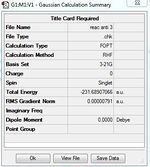 |
||
| Anti 4 | -231.69097054 (-231.69097) | C1 | 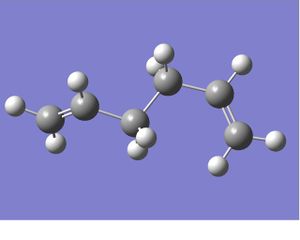 |
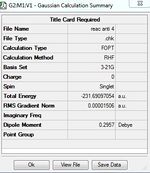 |
||
| Gauche 1 | -231.68771613 (-231.68772) | C2 | 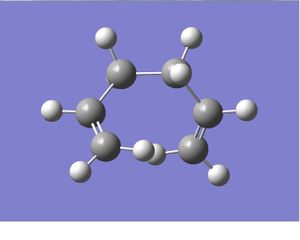 |
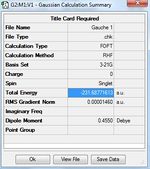 |
||
| Gauche 2 | -231.69166702 (-231.69167) | C2 | 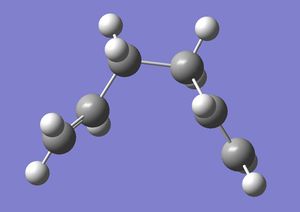 |
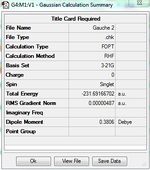 |
||
| Gauche 3 | -231.69266120 (-231.69266) | C1 | 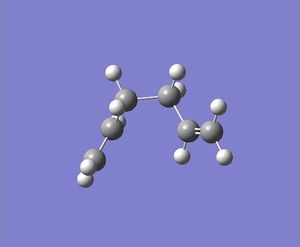 |
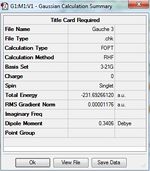 |
||
| Gauche 4 | -231.69153032 (-231.69153) | C2 |  |
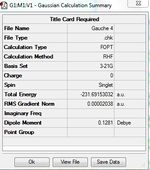 |
||
| Gauche 5 | -231.68961572 (-231.68962) | C1 | 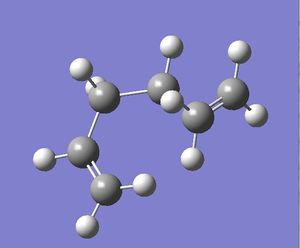 |
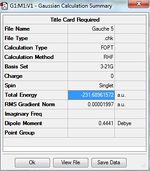 |
||
| Gauche 6 | -231.68916017 (-231.68916) | C1 | 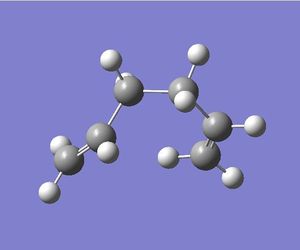 |
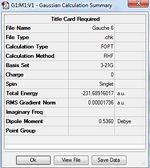 |
Comparison of results using HF/3-21G and B3LYP/6-31G
Geometry (comparison with geometric parameter?) Energy -234.61169881 vs -231.69253494 change in energy.
Frequency calculation (unit???????)
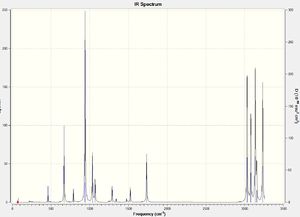
Sum of electronic and zero-point Energies= -234.469231 Sum of electronic and thermal Energies= -234.461865 Sum of electronic and thermal Enthalpies= -234.460920 Sum of electronic and thermal Free Energies= -234.500877
Optimizing the Chair and Boat Transition structures.
In this section you will learn how to set up a transition structure optimization (i) by computing the force constants at the beginning of the calculation, (ii) using the redundant coordinate editor, and (iii) using QST2. You will also visualize the reaction coordinate and run the IRC (Intrinisic Reaction Coordinate) and calculate the activation energies for the Cope rearrangement via the "chair" and "boat" transition structures.
